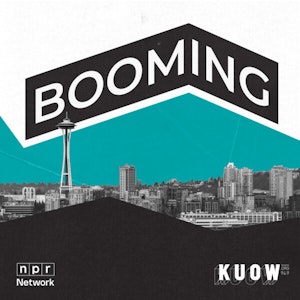Joshua McNichols
Growth and Development Reporter
About
As KUOW's Growth and Development reporter and co-host of KUOW's Booming podcast, Joshua's "growing pains" beat sits at the nexus of housing, transportation, urban planning, government and the economy. His favorite stories also include themes of history, technology, and climate change.
Joshua holds a B.A. in Architecture from the University of Washington. Public Radio is his second career; architecture was his first. He is proud of the many odd jobs he's held in his life, such as salmon fisher, author, bike courier, and bed-and-breakfast cook.
Location: Seattle
Languages Spoken: English
Pronouns: he/him
Professional Affiliations: The Society of Professional Journalists, Western Washington Chapter
Stories
-

Essential workers face risks, work anyway
Essential workers –workers that many of us take for granted – are now on the front lines of the fight against the coronavirus.Because they can’t work from home. The list of essential workers approved by Governor Jay Inslee includes health care workers of course, but it also includes many other types of jobs. KUOW’s Joshua McNichols checked in with a few essential workers to see how they’re feeling about their jobs right now.
-

Seattle realtors ask: 'Can you see yourself being quarantined here?'
If you’re shopping for a home this weekend in Seattle — you’ll have a hard time finding open houses. That’s because the nonprofit that publishes real estate listings shut down open houses last week, due to coronavirus concerns. But the real estate market is still hot, so realtors are experimenting with new strategies.
-

Laid off in Seattle and thinking about the future
Karen and Jay are friends. They go out with other friends every week and share details about their lives. Now, they get to share something else: Like many people in the age of coronavirus, they've both been laid off.
-

Health
Local farmers, customers brave closed markets during coronavirus outbreak
The Ballard Farmers Market was closed Sunday, to minimize risk of exposure to the coronavirus. But some farmers showed up anyway.
-

Health
Selling a homeless newspaper in the time of the coronavirus
The vendors that sell Real Change, the homeless newspaper, are getting hit by the economic fallout of the coronavirus. Newspaper sales are down due to social distancing. It's part of a larger trend: funds for non-profits are declining even as the need for services grows.
-

Health
Uber and Lyft drivers struggle to stay safe from coronavirus
This week rideshare drivers plan to meet with Uber and King County Health officials to hammer out a coronavirus safety plan. Full time drivers can easily carry 15 to 20 passengers a day. Many of their customers come straight from the airport. Drivers have a lot of questions about how to stay safe.
-

Typhoid Mary on my mind: Coronavirus reveals thin safety net for gig workers
Many people are choosing to work from home in order to minimize their exposure to the novel coronavirus. That’s not an option for the many gig workers who say low wages mean they have to keep working.
-

Health
Retirement homes shore up defenses against coronavirus
The spotlight on COVID-19 deaths associated with Life Care Center in Kirkland has Seattle-area nursing homes, retirement homes and assisted living facilities trying to keep the virus out. Older people are at higher risk because they have more chronic conditions that complicate their body’s effort to fight the virus. We visited one place on the border of Seattle and Renton to learn what they’re doing.
-

Buses in the age of Uber: Seattle commuters face transit challenges
Ever since Uber and Lyft came to cities, fewer people have been taking the bus. Now, buses are fighting back, with Uber-like services of their own.
-

The pros and cons of tracking college athletes' health
In professional sports, some coaches are using wearable fitness tracking devices to monitor the health of all their players… all the time. Now, some college coaches want to track college athletes the same way. Researchers at the University of Washington have published a study looking into the implications.

